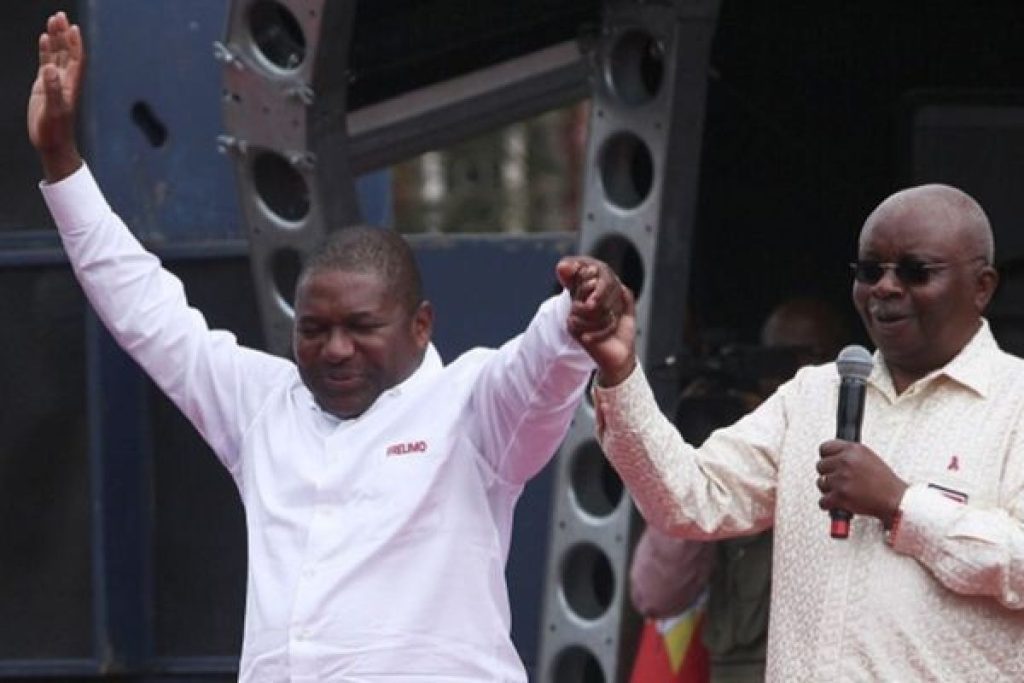The son of formerpresident Guebuza and other high-profile Mozambicans will wait until August to hear the outcome of the country’s largest ever corruption case.
The 19 senior government officials charged in Mozambique’s largest ever corruption case were told they would have to wait until August 1 to hear their fate when the case came to a close on March 10. Among those on trial were Ndambi Guebuza, son of the former president Armando Emílio Guebuza, former Bank of Mozambique governor Ernesto Gove, former finance minister Manuel Chang, and several members of the secret service and state security. They face charges ranging from embezzlement and money laundering to association to commit crimes, falsification of documents and influence peddling. In all, 19 defendants have been tried for corruption over their involvement in a $2.2 billion maritime surveillance, fisheries, and shipyard project signed between 2013 and 2014. The contract was worth 12 per cent of Mozambique’s GDP. Several high-ranking members of the ruling Frelimo party were accused of misappropriating funds while overseeing deals between the British subsidiaries of investment banks Credit Suisse and VTB, and the state-owned companies Proindicus, Ematum and MAM. They are accused of receiving bribes from Abu Dhabi-based facilitator Privinvest Shipbuilding and embezzling up to $1.5 billion in lost funds. The loans were hidden from the public and the international community, which funds much of Mozambique’s national budget. The ‘hidden debts’ debacle is estimated to have cost the Mozambican state $11 billion in repayments and lost investment, and pushed nearly two million people into poverty, according to a Transparency International report.
‘The conduct of the 19 defendants deprived the Mozambican state of $2.2 billion, raised from international banks through guarantees provided by the government,’ the prosecution said.
‘Whoever joins a gang to steal from the state is not in the service of the state,’ added Ana Sheila, a prosecutor magistrate, reading the indictment.
‘The defendants acted in communion, putting their private interests above the interests of the state.’
It took 80 sessions for the court to hear from the 19 defendants and more than 50 witnesses, with a number of high-profile witnesses taking to the stand, including former president Guebuza and Adriano Maleiane, Mozambique’s newly appointed prime minister. Opposition leaders had called for the current Mozambican president, Filipe Nyusi, to appear in court over the incident. President Nyusi was defense minister at the time the so-called ‘hidden debts’ contract was signed, and they wanted him to testify about his role in the deal.
‘If the figure of the President of the Republic is associated, it is a noble moment for him to put into practice his great speech of fighting corruption,” said Venâncio Mondlane, an MP from the largest opposition party, Renamo. He added that ‘it would make history if Filipe Nyusi made himself available, lifted all his immunities’, and said ‘I am willing to go to justice and answer on all the elements that are conducive to add value in clarifying these debts’. The Public Ministry clarified that it did not call on Frelimo, or its candidate in the 2014 elections, Filipe Nyusi, who received $10m and $1m respectively, because they were protected from testifying by a limitation in Mozambican legislation. Another key figure in the alleged corruption, Manuel Chang, who was Mozambique’s finance minister at the time the contracts were signed, has been detained in South Africa since December 2018 following an international arrest warrant issued by the US. He is accused of being involved in a ‘multi-million-dollar cabal’ that abuses the US financial system, according to the US indictment, and is at the centre of a tug-of-war between Washington and Maputo, who want him extradited to answer corruption charges. The Mozambican authorities have appealed to their South African counterparts, requesting Chang’s extradition to Mozambique, for which they are awaiting a final decision. The case against the 19 co-accused is being followed closely in Mozambique, after the judge decided to make the trial public, with the right to record and capture images by the press. The decision to make the trial public was welcomed by Borges Nhamirre, a researcher at the Center for Public Integrity (CIP).
‘This process, from a legal and political point of view, is very important because it will define for the future and for the present how the state should be managed,’ he explained.
‘This is not a [trial] of a corrupt policeman. This is a [trial of] leaders of the state.’
All 19 defendants were heard in court and reiterated their innocence, asking for acquittal of the crimes they are accused of. Several, however, expressed their willingness to return the money and property they denied taking. The jurist Baltazar Fael, from the Centro de Integridade Pública (CIP), said that the recovery of assets bought with the money will be difficult because most of the assets are hidden abroad.


